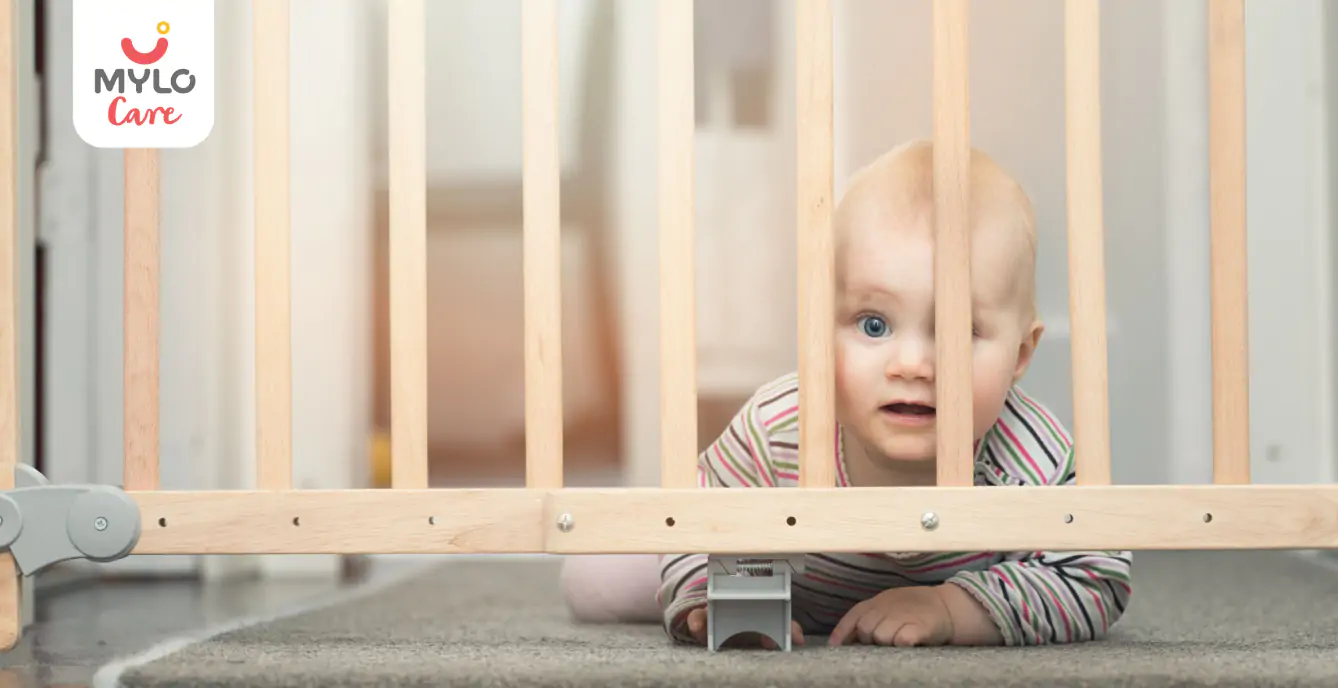Home

Conception

IUI Failure Symptoms & Reasons: Understanding Why IUI Fails & What to Do Next
In this Article

Conception
IUI Failure Symptoms & Reasons: Understanding Why IUI Fails & What to Do Next
Updated on 19 July 2023
Embarking on the journey to parenthood can be both thrilling and daunting, and when IUI doesn't bring the desired outcome, it's natural to feel a mix of emotions. But fear not, for this comprehensive resource sheds light on the IUI failure symptoms and reasons and empowers you with valuable insights.
Read till the end to learn about IUI failure reasons that may contribute to unsuccessful IUI cycles, equipping you with the knowledge to navigate the road ahead. Let's unlock the secrets together and discover what lies beyond the bumps in the road to your dreams of parenthood.
Understanding IUI and its Success Rates
IUI, or intrauterine insemination, is a widely used fertility treatment that involves placing prepared sperm directly into a woman's uterus to enhance the chances of conception. It is a relatively non-invasive procedure that can be a hopeful option for couples struggling with infertility.
On average, the success rates for IUI range from 10% to 20% per cycle. However, it's crucial to note that success rates can increase with multiple cycles of IUI. Statistics show that the cumulative success rate can reach up to 60% after six cycles.
Having realistic expectations and understanding that IUI may not always result in pregnancy is essential. Factors such as underlying fertility issues, advanced maternal age, or severe male factor infertility can impact the chances of success. Monitoring the woman's ovulation, using high-quality sperm, and addressing any underlying fertility concerns can help optimize the chances of a successful IUI cycle.
What is Failed IUI?
Failed IUI, also known as unsuccessful IUI, refers to a situation in which an intrauterine insemination procedure does not result in a successful pregnancy. It means that despite undergoing the process, the woman did not conceive. There can be various reasons why an IUI cycle fails, which we will discuss in detail further in the article.
IUI Failure Symptoms
Common symptoms of IUI failure include:
2. Negative pregnancy test
3. Absence of pregnancy symptoms
It's important to note that the absence of symptoms or the presence of the symptoms mentioned above does not guarantee the success or failure of an IUI cycle. The only definitive way to determine the success of an IUI cycle is through a pregnancy test or subsequent monitoring by a healthcare professional.
You may like : Are IUI (Intrauterine Insemination) Babies Normal?
IUI Failure Reasons
You must be wondering about why IUI fails then the answer is it can occur due to various factors, including male factors, female factors, and unexplained infertility. Let's explore these reasons in more detail:
1. Male Factors
- Low Sperm Quality: Poor sperm motility (movement), low sperm count, or abnormal sperm morphology (shape) can hinder successful fertilization during IUI.
- Erectile Dysfunction or Ejaculation Issues: Difficulties in achieving or maintaining an erection or problems with ejaculation can affect the availability and quality of sperm for the procedure.
- Blockage or Absence of Vas Deferens: The vas deferens is the tube that carries sperm from the testicles to the urethra. Blockages or absence of this tube can prevent sperm from reaching the semen, making successful IUI difficult.
2. Female Factors
- Ovulation Issues: Irregular or lack of ovulation can reduce the chances of successful fertilization during IUI. Hormonal imbalances, polycystic ovary syndrome (PCOS), or diminished ovarian reserve can contribute to ovulation problems.
- Fallopian Tube Issues: Blockages or damage to the fallopian tubes can impede fertilization, as sperm may not reach the egg, or the fertilized egg may have difficulty getting to the uterus for implantation.
- Uterine Abnormalities: Structural abnormalities of the uterus, such as fibroids, polyps, or adhesions, can interfere with implantation and pregnancy.
3. Unexplained Infertility
Sometimes, despite thorough evaluations, the cause of infertility cannot be identified, leading to unexplained infertility. This means no apparent male or female factors affect fertility, yet conception does not occur.
Diagnosing Failed IUI – Tests and Procedures
If you suspect IUI failure symptoms, it’s important to get a diagnosis. Further tests and procedures can be conducted to diagnose any underlying issues when faced with a failed IUI cycle.
Here are some standard diagnostic tests and procedures that may be recommended:
2. Hormone testing
3. Ovarian reserve testing
4. Hysterosalpingogram (HSG)
5. Sonohysterogram
7. Genetic testing
These tests and procedures help identify potential factors contributing to the failed IUI and determine the most appropriate course for future treatment.
What to do next after a failed IUI
Now that you are aware of IVF failure symptoms and why IUI fails, it's important to remember that alternative options are often available. Here are some steps you can consider taking after an unsuccessful IUI:
1. Review and Adjust the Treatment Plan
Your fertility specialist may suggest adjustments to your treatment plan based on the factors contributing to the IUI failure.
2. Explore In Vitro Fertilization (IVF)
IVF is a more advanced fertility treatment that involves fertilizing eggs with sperm in a laboratory setting before transferring the resulting embryos to the uterus. It offers higher success rates compared to IUI.
3. Consider Preimplantation Genetic Testing (PGT)
If there are concerns about genetic abnormalities or recurrent pregnancy loss, your fertility specialist may recommend PGT. This testing assesses embryos' genetic health before they are transferred, increasing the likelihood of a successful pregnancy.
4. Address Underlying Health Issues
If the failed IUI cycle reveals any underlying health issues, such as hormone imbalances or structural abnormalities, treating or addressing these concerns may improve your success in future attempts.
Alternative Fertility Treatments to Consider after a Failed IUI
If you have experienced an unsuccessful IUI cycle, there are alternative fertility treatments that you can consider. Here are some options:
1. In Vitro Fertilization (IVF)
IVF, or in vitro fertilization, is an assisted reproductive technology that involves fertilizing an egg with sperm outside the body in a laboratory and transferring the resulting embryo to the uterus for implantation.
2. Intracytoplasmic Sperm Injection (ICSI)
ICSI is a specialized form of IVF where a single sperm is directly injected into an egg. It is recommended in cases of severe male factor infertility or previous fertilization failures.
3. Donor Sperm or Donor Eggs
If there are severe male factor infertility issues or the quality of the eggs is a concern, using donor sperm or donor eggs can be an option.
4. Frozen Embryo Transfer (FET)
If you have frozen embryos from a previous IVF cycle, a FET can be performed.
5. Preimplantation Genetic Testing (PGT)
PGT involves screening embryos for genetic abnormalities before transferring them into the uterus.
Each treatment has its considerations, success rates, and associated costs, so it's essential to have a thorough understanding before making a decision.
Conclusion
In conclusion, experiencing a failed IUI cycle can be disheartening, but it's important to remember that alternative fertility treatments are available. After reading this article, you must be aware of IUI failure symptoms; now, consulting with a fertility specialist is crucial to assess your specific circumstances, understand the underlying factors contributing to the failed IUI, and determine the most suitable treatment plan moving forward. Your determination, combined with the support of medical professionals, can bring you closer to the positive outcome you've been longing for.
References
1. Allahbadia, G. N. (2017). Intrauterine Insemination: Fundamentals Revisited. Journal of Obstetrics and Gynaecology of India. NCBI
2. Immediata, V., Patrizio, P., Parisen Toldin, M. R., Morenghi, E., Ronchetti, C., Cirillo, F., Baggiani, A., Albani, E., & Levi-Setti, P. E. (2020). Twenty-one-year experience with intrauterine inseminations after controlled ovarian stimulation with gonadotropins: maternal age is the only prognostic factor for success. NCBI



Written by
Madhavi Gupta
Dr. Madhavi Gupta is an accomplished Ayurvedic doctor specializing in Medical content writing with an experience of over 10 years.
Read MoreGet baby's diet chart, and growth tips

Related Articles
Related Topics
RECENTLY PUBLISHED ARTICLES
our most recent articles

Lactose Intolerance
Lactose Intolerance in Babies: A Parent’s Guide to Identifying and Managing it

Medical Procedures
TESA IVF: How This Procedure Can Help You Achieve Your Dream of Parenthood

Sensory Development
How Can You Encourage Sensory Play for Your Baby and What are Its Benefits?

IVF Pregnancy
After How Many Weeks IVF Pregnancy Is Safe: Understanding The Ideal Timeline

Exploring the Senses: 9 Incredible Benefits of Sensory Play for Your Child's Development

Childproofing
The Ultimate Guide to Childproofing Your Home
- Start Their Love for Reading Early: The Best Books for Baby's First Library
- CMPA (Cow's Milk Protein Allergy): Identifying Symptoms and Understanding Treatment
- Birth Control Options While Breastfeeding: Balancing Parenthood and Contraception
- Period During Breastfeeding What Every New Mother Should Know
- Role of Stories and Rhymes in Your Baby’s Brain Development
- Intracytoplasmic Sperm Injection (ICSI) How It Can Help Treat Male Infertility
- Baby Sleeping While Breastfeeding: Understanding the Causes and Solutions
- Lump in Breast During Breastfeeding How to Identify, Treat, and Prevent Lump Formation
- Understanding Down Syndrome: A Comprehensive Guide for Parents
- Lactation Failure: A Comprehensive Guide to Understanding the Causes and Solutions
- Breast Pain During Pregnancy: What to Expect and How to Find Relief
- Baby Spit Up: The Ultimate Guide to Causes, Prevention, and Management
- Unexplained Infertility: Breaking Down the Factors and Finding Solutions
- Mulethi: Unraveling the Therapeutic Potential of Licorice Root for Your Overall Health


AWARDS AND RECOGNITION

Mylo wins Forbes D2C Disruptor award

Mylo wins The Economic Times Promising Brands 2022
AS SEEN IN
















- Mylo Care: Effective and science-backed personal care and wellness solutions for a joyful you.
- Mylo Baby: Science-backed, gentle and effective personal care & hygiene range for your little one.
- Mylo Community: Trusted and empathetic community of 10mn+ parents and experts.
Product Categories
baby carrier | baby soap | baby wipes | stretch marks cream | baby cream | baby shampoo | baby massage oil | baby hair oil | stretch marks oil | baby body wash | baby powder | baby lotion | diaper rash cream | newborn diapers | teether | baby kajal | baby diapers | cloth diapers |




